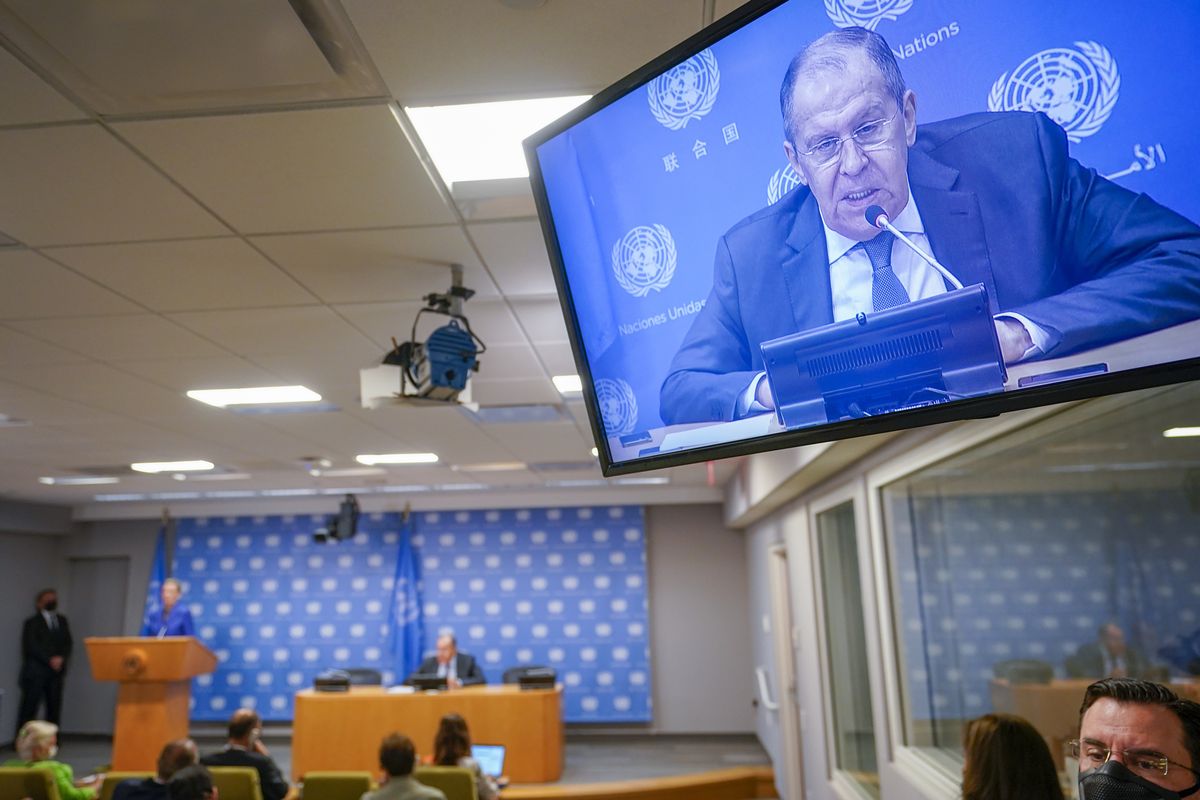Russia says it’s in sync with U.S., China, Pakistan on Taliban

UNITED NATIONS — The United States, China, Russia and Pakistan are working together to ensure that Afghanistan’s new Taliban rulers keep their promises, especially to form a genuinely representative government and prevent extremism from spreading, Russia’s foreign minister said Saturday.
Sergey Lavrov said representatives from Russia, China and Pakistan had traveled to the Qatari capital of Doha and then to Afghanistan’s capital Kabul to engage with both the Taliban and representatives of “secular authorities” — former president Hamid Karzai and Abdullah Abdullah, who headed the ousted government’s negotiating council with the Taliban.
Lavrov said the interim government announced by the Taliban does not reflect “the whole gamut of Afghan society — ethno-religious and political forces — so we are engaging in contacts, they are ongoing.”
The Taliban have promised an inclusive government, a more moderate form of Islamic rule than when they last ruled the country from 1996 to 2001 including women’s rights, stability after 20 years of war, and stopping militants from using their territory to launch attacks. But recent moves suggest they may returning to more repressive policies, particularly toward women and girls.
“What’s most important … is to ensure that the promises that they have proclaimed publicly to be kept,” Lavrov said. “And for us, that is the top priority.”
At a wide-ranging press conference before delivering Russia’s speech at the U.N. General Assembly’s high-level meeting, Lavrov addressed issues ranging from efforts to get the United States to rejoin the 2015 nuclear deal with Iran to Russian mercenaries in Mali.
The United States has been pressing for Iran to resume nuclear negotiations, but Lavrov said it was then-President Donald Trump who pulled the U.S. out of the nuclear agreement, so to declare that “time is running out, anybody could say this — but not Washington.”
He said Russia would like to see the resumption of negotiations to restore the original agreement as soon as possible. But the leaders of Iran’s new government “are saying that they need at least a couple of weeks, and hopefully not more, to put together the negotiating team because they’ve had some staff changes,” he said.
Lavrov also defended the decision of the transitional government in Mali to hire a private Russian military company to help fight terrorists, saying it has a “legitimate” right to do so and the Russian government is not involved.
France has announced it is reducing its force fighting extremists in Mali and the region, Lavrov said. And in a stinging rebuke of their performance, he said, the French forces “should have been combating terrorists who have established a presence in Kidal (in northern Mali), but they didn’t manage to do that. And terrorists continue to reign in that area.”